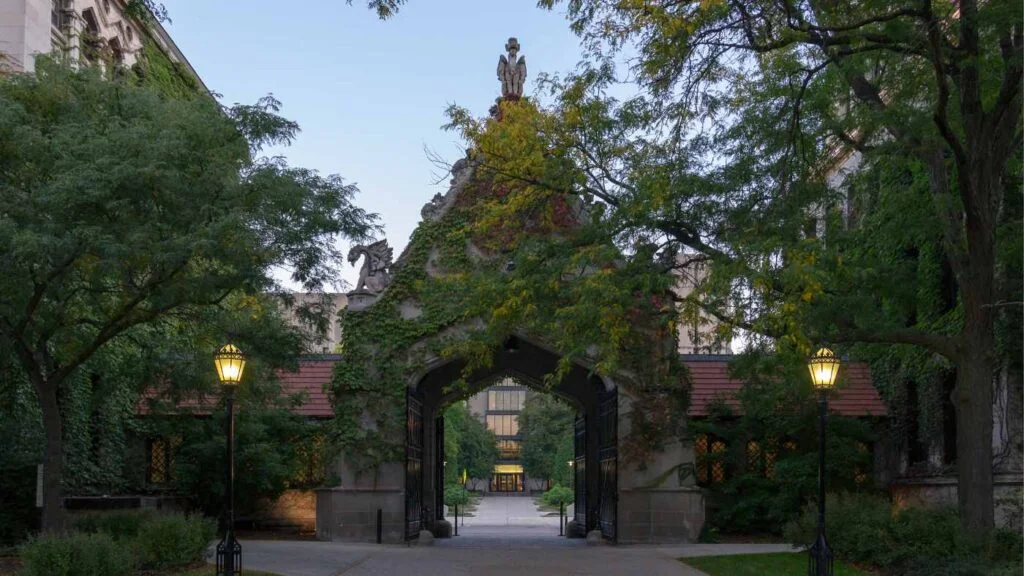Dartmouth College, one of the top Ivy League, is consistent with its unique academic culture geared towards inquisitive minds, creativity, and leadership. Aspiring for admission at Dartmouth? Then it is important to be concerned with admission procedures and the application process as well. By the end of this guide, you will have all the necessary knowledge to apply successfully, and also give you practical advice that can increase your chances of being offered a place.
Why Consider Dartmouth College for Your Undergraduate Education?
Dartmouth College stands out as the perfect mix of academic hustle, a chill community vibe, and plenty of room for personal growth. Being an Ivy League school, it puts students at Dartmouth in the position of having to think critically while also getting a chance to build meaningful relationships with classmates and professors. The college is all about giving a solid undergrad education and cares about leaders and communities, making it a great spot for students who want to excel. At Dartmouth, you’re not just hitting the books; you’ll learn from people and experiences that actually help you shape your future.
Dartmouth Admission Requirements:
Here’s the list: what they look at when applying to Dartmouth. The admissions board looks over some key things when looking over an application. These things include your grades, standardized test scores, a quick rundown of any extracurriculars you’ve done, essays, and letters of recommendation. I will break down each of these areas in more detail below.
1. Academic Excellence
Dartmouth College welcomes applicants who have taken the high school years seriously to think things through. Here’s what you need to know:
- Grades:
Getting good grades in hard subjects is super important. Dartmouth really wants to attract students who have actually crushed their A-level, IB, or AP programs. Your grades are a big deal and are going to play a huge role in your application, but knowing the requirements for your course load is just as key.
- Class Rank:
There is no minimum class ranking that Dartmouth gives out, but they do look at how you stack up against your classmates. If your school has a ranking system, just make sure your ranking is in line with what Dartmouth expects.
2. Standardized Test Scores
Dartmouth College has a test-optional policy, so SAT or ACT scores are no longer required for applications. But if you do have some excellent test scores that make the grade, then that is just the icing on the cake of your application!
- SAT or ACT scores:
- SAT: 1450–1570 (out of 1600)
- ACT: 32–35 (out of 36)
If you are submitting your test scores, make sure these are directly from the College Board for SATs or the ACT folks.
- TOEFL or IELTS (for International Students):
If English is not your first language, you may need to show TOEFL or IELTS scores to demonstrate your ability in the language. Typically, Dartmouth requires a minimum TOEFL score of more than 100 or a minimum IELTS score of more than 7.5.
3. Extra-Curricular Activity
The admissions committee will look for evidence of leadership, initiative, and passion outside of the classroom. Consider taking a more active role in the following:
- Leadership Roles: Assumed leadership functions in school clubs, sports, or community groups are very important.
- Community Service: Helping out at something you care about shows that you realize social issues and are serious about making a change.
- Personal Projects or Achievements: Be that doing some research, writing a book, or setting up a nonprofit, any personal projects show off your motivation and creativity.
Remember, it is not about the number of extracurriculars but the depth and influence of your involvement. They look for students who have devoted themselves to their interests and can contribute to the diversity of the Dartmouth community.
4. Essays and Personal Statements
This is your opportunity to share with them who you are beyond grades and test scores. Dartmouth accepts the Common Application or the Coalition Application, which has personal essay prompts. Here are a few examples:

If you’re struggling with the essay process, contact our US & UK undergraduate university consulting for expert advice on how best to polish your essays- it’ll help you shape up your ideas and show them in a really good light fitting that will be expected by the people of Dartmouth.
5. Letters of Recommendation
Dartmouth needs two letters of recommendation, presumably from teachers who taught you main subjects (such as English, mathematics, science, or social studies). Ideally, your recommenders should be teachers who know you well and be able to speak about your academic skills in the school setting and who you are as a person.
When selecting recommenders:
- Choose teachers who know you: They should be able to give specific examples of what you’re good at and how you’ve contributed.
- Ask early: Give your recommenders enough time to write thoughtful letters and remember to follow up to ensure that they submit theirs on time.
6. Interview:
Dartmouth offers interviews as part of the application process but it is not required. Traditionally, the interviews have been held by alumni and you might have a great chance of finding out more about Dartmouth, and it also presents a good opportunity for them to know a little more about you.
If invited for an interview, make sure to:
- Prepare: You should be prepared to discuss your passions, experiences, and reasons that make you want to attend Dartmouth.
- Just be yourself: The interview is also a good opportunity to show off your personality and vibe with Dartmouth’s values well.
Dartmouth Application Fee and Deadlines
The application fee at Dartmouth College is $85. But don’t worry, fee waivers are available for students who show they need financial help. Just hit up the Common Application or Coalition Application to request one if you qualify.
So, here are the important deadlines to keep in mind for applying to Dartmouth:
- Early Decision: November 1st.
- Regular Decision: January 2
You should check Dartmouth’s official website for accurate deadlines since they tend to update a little every year.
How to Increase Your Chances Getting Into Dartmouth
Dartmouth is super selective, with an acceptance rate of about 5.3%. If you want to boost your chances of getting in, check out these tips:
- Keep academics strong: Take challenging advanced coursework and perform well.
- Submit strong essays and recommendations: Your essays should reflect who you are and why you’re a good fit for Dartmouth.
- Seek professional help: Our Ivy League psychometric career counseling tests will help identify your strengths and what the Dartmouth system looks for. With these tests, you’re going to find out great things about yourself that can impact your academic and career future, hence helping in choosing an application plan.
How AddedEducation Can Help You Get into Dartmouth College?
At our consulting firm, know what it takes to bring a student into a prestigious institution like Dartmouth by offering complementary education support systems. AddedEducation has direct guidance for expertise advice to polish your college applications so that your strengths are truly diverse. We have to give you awesome insights and strategies on how to write essays and pick all those necessary extracurricular activities that would make the mark. We support the students so that they can do their profiles well in meeting Dartmouth’s standards. Hence, the admissions committee sees them in the best light.





